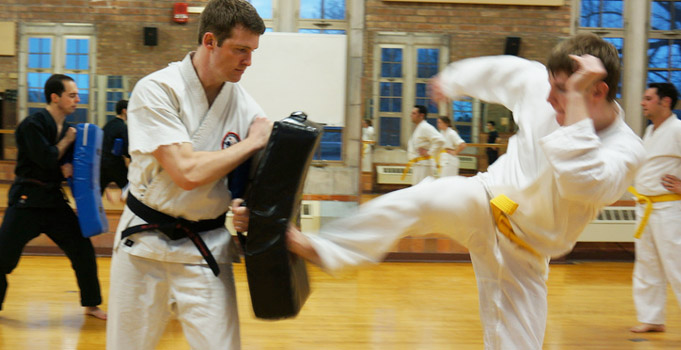You’ve been banned from the Netflix account because your partner and friends are officially done with your obsession with martial arts movies. And, really, after you got down to Shaolin Soccer, you could hardly blame them. Even you need something other than kicks to the head sometimes.So how can you work your way back into good graces but also incorporate some martial arts essence? Try these four movies for good filmmaking with a martial twist, and maybe your friends and family will finally understand why you are always so eager to suit up in your karate gi and get training.
Twilight Samurai. This tale by Japanese director Yoji Yamada takes us into the world of a low-level samurai, circa 1868, a widower who is raising two young daughters and caring for his senile mother. He scratches out a meagre living by working as abookkeeper in the local storehouse, where he is mocked constantly by colleagues and supervisors. When a childhood crush comes back around after leaving her abusive husband, the protagonist is forced by his clan to call upon his skills. Beautifully shot and emotionally resonant, Twilight Samurai swept the 2003 Japanese film awards.
O Zelador (English title: The Caretaker).This documentary, shot over a period of five years, follows days in the life of Mestre Russo, a capoeira master who resides in the poor community of Baixada Fluminense, an hour from the centre of Rio de Janeiro. In 1973, Russo and fellow jogadores took capoeira back to the streets from sports academies, starting the weekly open roda at Caixias – a roda where every player is welcome and has a place. But this is not a film about the practice of capoeira. By spooling the film around Russo, the roda, and his community, British filmmaker Daren Bartlett illuminates uncomfortable facts about race and class in Brazil and capoeira’s place as a tool of resistance against injustice and as a source of self-worth for people who have little else in life.
Ghost Dog: The Way of the Samurai. DirectorJim Jarmusch takes the strands of martial arts movie tropes and weaves them together with quiet brilliance. A down-on-its-luck mafia clan has benefitted for years from the services of a self-appointed retainer, masterfully played by Forest Whitaker, who finds himself on the wrong side of their business when one of his hits is witnessed by the daughter of the clan’s boss. You’ll geek out on the references to Rashomon and quotes from the Hagakure. The sound track by RZA is haunting.
When We Were Kings (1996). Composed almost entirely of footage shot to document the lead-up to the 1974 fight in Kinshasa between Muhammad Ali and George Foreman –promoted by Don King as the Rumble in the Jungle – When We Were Kings provides a layered look at the racial and political tensions rife in the United States of the 1970s, as the promises of the Civil Rights era receded into the distance. You see a good deal of the fight itself, but more interesting is the spectacle surrounding it and the ethical questions of the fight being funded by the dictator Mobutu Sese Seko.
Each of these films offers a unique perspective on the choice to follow the martial path. So the next time you put on your karate gi, you might be packing a little philosophy with your punches.




